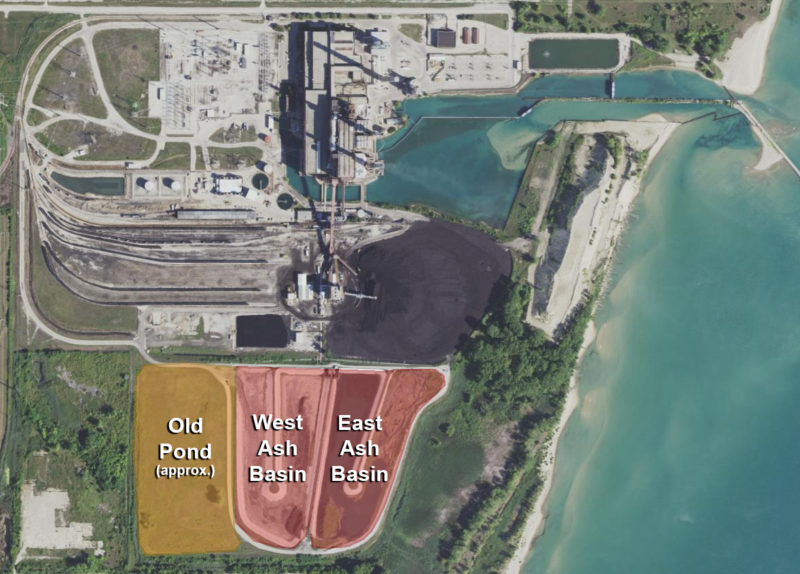Illinois Pollution Control Board Denies NRG Energy’s Attempt to Delay Coal Ash Hearing at Waukegan
Ever since Illinois finalized its coal ash rules, NRG Energy has been trying to get an adjusted standard for a coal ash impoundment at the Waukegan Power Station and many other sites. The impoundment in question, called Old Pond (or deceptively the “Grassy Field” by NRG) is unlined, contains wet coal ash, and impacts groundwater at the site. On top of the exemption, NRG had requested a one-year delay in making the decision, further pushing back the date when this site might finally be cleaned up.

On Friday 10/5, the Illinois Pollution Control Board denied NRG’s requested delay, and the case will move to trial – a critical step in finding resolution and moving towards clean up. The Illinois EPA had asked the Board to move forward with the case and deny NRG’s requested delay. Prairie Rivers Network and a team of environmental groups, led by Earthjustice, filed public comments in support of the Illinois EPA and moving forward with the case.

Community leaders in Waukegan, including Dulce Ortiz of Clean Power Lake County, have been calling for the site to be cleaned up for years.
“Not only is it a tremendous amount of toxic pollution that our predominantly low income, Latino residents are exposed to, but it is also devastating for our community economically.” said Dulce Ortiz in 2020 testimony about the site. “Waukegan has dreamed for years, and still dreams, of revitalizing our lakefront. We have aspirational lakefront plans that have seen little success in coming to fruition in part because of the amount of contamination that remains at many of these sites and the limited re-use options they offer due to the levels of contamination.”
The Board’s denial of the petition is a critical step in a process that has already taken too long to clean up the coal ash at Waukegan. In addition to the Old Pond, there are two active ponds at the Waukegan site. Both of these ponds have closure plans, but those plans have been under review at the Illinois EPA for over a year.







